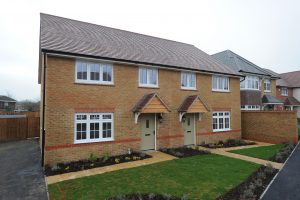
The NHF National Development Conference 2017 highlighted a growing consensus that partnerships between local authorities and housing associations may provide a viable strategy for combating housing supply shortages. Andrew Shaw and Matthew Waters from Bevan Brittan LLP discussed the details behind the rationale for these partnerships. LABM’s Sophie Taylor finds out more.
The incentives for local authorities
There is clearly a national need for housing supply, which translates to the local level. Local authorities have a desire to be part of the solution, and this involves providing the housing that its local community needs.
However, some of the financial levers regarding housing supply are changing. These tend to be related to planned devolution and giving more control over housing, as well as increasing financial incentives for driving growth in an area. Additionally, there is a desire by local authorities to establish income streams for their services as they look to become more financially self-sufficient.

Increasingly, local authorities want to play a much more active role in the supply of new housing in their areas. Indeed, many are already doing so, such as Basildon Council. In most cases, they are looking to do this through dedicated housing delivery vehicles: corporate entities set up to allow them to engage in supply on a more commercial basis, providing a greater range of tenures. Currently, there are hundreds of authorities taking this approach, which is mostly looked at as a means of delivering local authority resourced housing.
As local authorities build on their desire for a greater scale of delivery, they will need to look for partners. This will require developing a corporate structure — a vehicle outside of the traditional local authority structure — and a way of operating that facilitates commercial relationships with others.
From the perspective of housing associations
Housing associations are able to provide the capacity and established means to deliver developments — they have frameworks and a longer history of delivery than local authorities. They also have an increasing appetite for providing a range of tenures, and in many cases moving away from traditional developer roles to a more land-led developer role. For this reason, there is an increased need for land, which local authorities have strong links to.
A perfect match?
Housing associations and local authorities both share social objectives, as well as a need to be focussed on the financial basis of their activities. They are also long-term stakeholders in a community. In addition to bringing trust between the two organisations, this allows both parties to see the potential of long-term interests, opening up more opportunities for the types of partnerships that can be achieved.
There is a clear opportunity for how the two organisations can work together — local authorities bringing land and housing associations bringing capacity. The complementary assets of land and capacity will allow both partners to scale up the finance and capital available to be put into the developments. The fact that they both have a long-term approach also means that they can take a broader view regarding the return on capital than others may be willing to do. This opens up more avenues for scale of delivery, which forms a strong platform for bringing in outside investment.
Another advantage of both entities being public bodies is that they are able to form partnerships without the need for an open procurement process. This increases the scope for a proactive approach and faster delivery times for new housing.
A strong example: Hyde Housing and Brighton & Hove City Council
A partnership between Hyde Housing and Brighton & Hove City Council has resulted in the building of 1,000 homes — 500 of which offer living rent, and 500 for shared ownership (all of which are affordable).
In this case, Hyde took a proactive approach as they already had a good relationship with the local authority and there was no procurement requirement. The partnership was a standard JV arrangement, formed with shared equity funding of £176m. The council provided five development sites, while Hyde offered development management skills and capacity.
Councillor Warren Morgan, Chair of the Policy, Resources and Growth Committee, commented: “Brighton & Hove City Council has decided to build over 1,000 new and truly affordable homes for people in Brighton & Hove who need them, in partnership with Hyde Housing. This is the biggest commitment on housing in the city for a generation.”
The success of the partnership in Brighton reveals the potential gains for both local authorities and housing associations from these types of arrangements.








